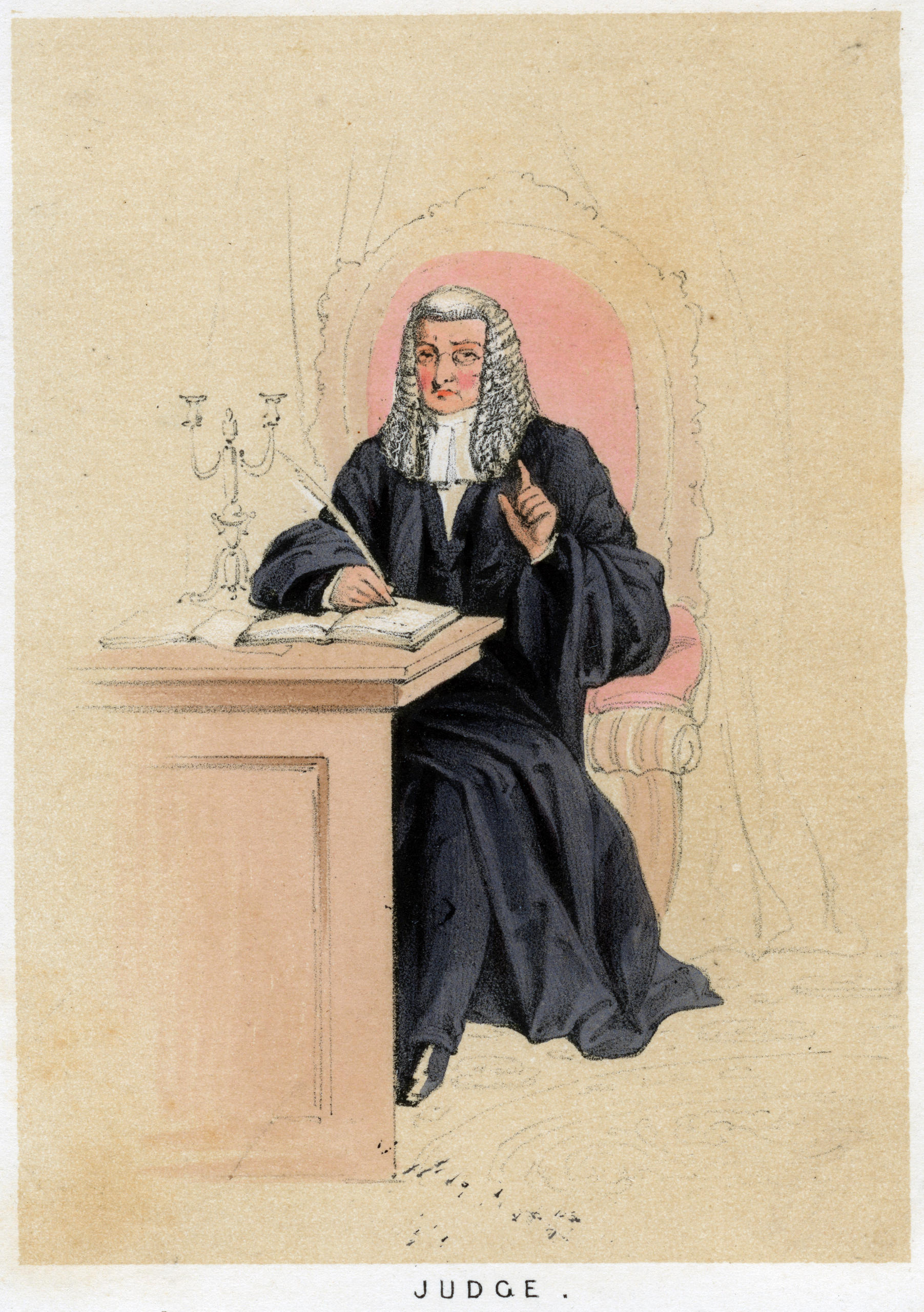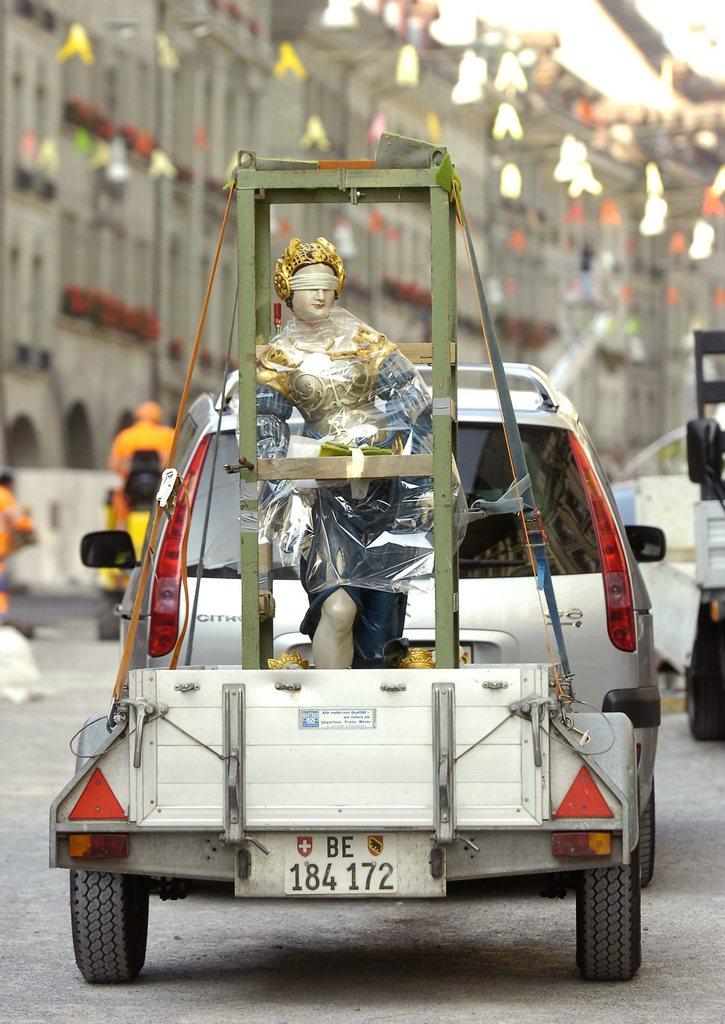Choose judges by lot? How fair is that?

A Swiss people’s initiative has called for federal judges to be drawn by lot. Historian and legal scholar Lorenz Langer explains how Switzerland came to have its internationally controversial system of selecting judges.
On the day that US President Donald Trump is set to announce his nominee for a lifetime position on the US Supreme Court, Langer also discusses the consequences of giving too much power to one person.
swissinfo.ch: Why did Switzerland begin to take political parties into account in appointing judges, even though there is no legal requirement for this?

Lorenz Langer: The fundamental question is how far the justice system requires democratic legitimisation, or whether applying the rule of law is a purely technocratic task that should be fully isolated from politics. In Switzerland, the conclusion reached was that there are certain connections to politics, and that perhaps there have to be.
swissinfo.ch: So it was deemed desirable to have judges who represent a full range of opinions?
L.L.: Exactly. Courts should, to a certain extent, reflect the political spectrum.
swissinfo.ch: The people behind this initiative want to eliminate this, at least on a federal level, and instead choose judges by drawing lots. Is that fairer?
L.L.: What does fair mean? (laughs) The idea of drawing lots did surprise me a bit, to be honest. The main problem with the proposals in this initiative is that entry into the draw would be permitted “only on the basis of objective criteria of technical and personal suitability” for the office of judge. I would of course be delighted for the sake of my post-doctoral thesis if someone could tell me what these “objective criteria” are. In my opinion, this is just passing the problem to someone else.
swissinfo.ch: You mean that all the power would then be in the hands of an expert commission, who would choose the pool of candidates for the draw. There is no guarantee that this commission would choose fairly.
L.L. Yes, but again – what does fair mean? It would probably be less representative. There is a risk that in a panel like this, certain social strata, educational backgrounds and political views would dominate and others would lose out.
swissinfo.ch: So the current system is better equipped to ensure that not just one type of judge passes verdicts, but that a certain diversity exists?
L.L.: Yes. With the current system, we perhaps don’t necessarily get the top professors as judges, but it ensures that the spectrum is, to a certain extent, covered. There are studies in other countries, England for example, where we have seen that judges are predominantly conservative white men, which doesn’t reflect the society at all. And judges are chosen by expert panels there. I think “co-opting”, or allowing judges to choose their own colleagues, is also problematic.
swissinfo.ch: But the proposers of this initiative accuse parliament of ‘nepotism’ in choosing judges.
L.L.: This risk does of course exist. And procedures in the parliamentary court commission don’t appear very transparent. I think that there, too, quite a lot happens informally. Sometimes it’s clear a long time in advance who is being considered for a position. The question is just whether there is any system where that isn’t the case.

More
What if the House of Representatives were chosen at random?
swissinfo.ch: The proposers of this initiative say the current situation is so bad that a lack of judicial independence is one of the central problems of our democracy.
L.L.: In international rankings on judicial independence, Switzerland usually features in the top four or five. The problems we have discussed exist in theory, of course. But the question is whether we just want to focus on the theory, or whether we also want to look empirically at how it has functioned so far.
swissinfo.ch: Here’s a concrete example: a few years ago, some factions in the Swiss parliament refused to support a judge standing for reselection as a punishment for a ruling they didn’t like.
L.L.: This risk is there, yes. My assumption is that people only take that kind of a stand when they are quite sure it won’t have any consequences. So far there has only been one case where a federal judge was not confirmed by parliament. This problem is not so much to do with party affiliation as with the length of term. The proposers of the initiative want to change that too, so that judges would stay in office until retirement.
swissinfo.ch: Does this not give too much power to one individual?
L.L.: Yes, we have seen the consequences of this in the Supreme Court in the United States. First, the decision becomes highly politicised before the appointment, because if someone is a judge for such a long time, people want to be sure that this person matches their own preferences. The US example also shows that in the end this isn’t possible because some judges change their views later. That poses the question of whether we can expect a certain amount of democratic accountability from judges. Especially if you consider that courts are increasingly ruling on political questions.
swissinfo.ch: How can this development be stopped and political decisions returned to the legislative? Or is that not even desirable?
swissinfo.ch: It depends on the substance. The judiciary at least offers minorities protection, something the political establishment cannot offer. If everything is determined by majority rule, minorities are the victims. In those terms, this was not such a bad development for basic and minority rights…
swissinfo.ch: But?
L.L.: There is potential for conflict. Courts bear a big responsibility to leave some questions open or to say that this is a political question. This conflict is particularly apparent at the European Court of Human Rights. Every now and then it stands back and says “we will leave this to member states”, but in other areas it interferes quite heavily in social questions.
swissinfo.ch: That is, in fact, very undemocratic, because then just three to five judges decide alone.
L.L.: Exactly. And it is similar on a national level. So a court can rule with greater democratic legitimacy if it is chosen by parliament or the people. And because of the increasing tendency to make political questions a matter for the judiciary, I think that is important.
Translated from German by Catherine Hickley
Lorenz Langer
Lorenz Langer studied medieval studies, history, archaeology and law. He is currently working at the University of Zurich and the Aarau Centre for Democracy and is researching how judges are selected in Switzerland for his post-doctoral thesis.
The federal people’s initiative “Appointing judges by drawing lots (justice initiative)External link” calls for judges at the Federal Court to be appointed by drawing lots, though each of the official languages must be appropriately represented.
Candidates for the draw should be nominated on the sole basis of “objective criteria of technical competence and personal suitability” to the role of federal judge. An expert commission would determine who qualifies.
The term of office for judges at the federal court would, under this initiative, end five years after they have reached the official retirement age.
Translated from German by Catherine Hickley

In compliance with the JTI standards
More: SWI swissinfo.ch certified by the Journalism Trust Initiative














You can find an overview of ongoing debates with our journalists here . Please join us!
If you want to start a conversation about a topic raised in this article or want to report factual errors, email us at english@swissinfo.ch.